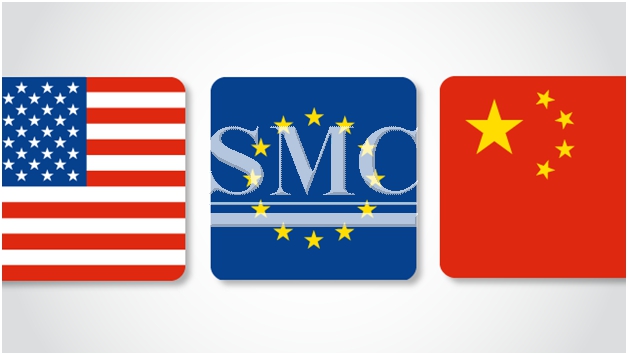
- المنتجات المعدنية منتجات الألومنيوم منتجات النحاس المنتجات المطلية بالمعادن المنتجات الفولاذية المقاومة للصدأ منتجات الفولاذ الكربوني خلط المعادن الخاص
- المشاريع لوحة الحواجز الفولاذية رف الخزانة الهياكل الفولاذية الجسر الفولاذي السقالة المواد الإنشائية المواد الخام الكيميائية One Stop Solutions for Projects
- الحاويات الحاويات القياسية لـ ISO الحاويات للمعدات الحاويات للتخزين والنقل دار الحاويات الحاويات المثلجة الحاويات القريبة السواحل
- الماكينات آلة تشكيل المعادن الآلات الأخرى آلة قطع المعادن آلة تصنيع المعادن آلة التعويج آلة تصنيع البلاط
- منتجات الماكينات صناعة السيارات المنوعات معدات الإرساء معدات السفينة أناء الضغط
- النظام الكهرباء والميكانيكي الكابل الكهربائي الأوتوماتيكي التنسيق الكهربائي نظام طاقة الشمس نظام حماية أمن الكهرباء آلة التحويل خط الأنتاج نظام الإضاءة
- المعدات الطبية منتجات الإطعام منتجات أنبوب إدخال القصبة الهوائية منتجات الرعاية المنتجات البلاسبيكية
- epc مشاريع
- آلات البناء
- خط أنابيب النفط
- خط أنابيب المياه
- انبوب الغاز
- مستلزمات السفن والرباط
- المعادن للزخرفة/ للديكور
- مكونات المحولات
- أنابيب التبادل الحراري
- قطع غيار تكييف الهواء ومستلزماته
- سخان مياه
- أدوات المطبخ و الحمام
- المعادن للأجهزة المنزلية
- أجهزة الطاقة الشمسية
- المصعد الكهربائي
- الأسطح والأسقف
- الكابلات
- الخزانات
- التعبئة والتغليف
- قطع غيار الآلات والمعدات ومستلزماته
- القوالب
- قطع غيار السيارات
- السكك الحديدية و رافعات السكك الحديدية
- تركيب الأجهزة
- الكاشطة
- معدات بناء الطرق
- المكونات الإلكترونية
- اعمال البناء ومواد الديكور
- الأبواب والنوافذ
- الثلاجات
Western fears grow amid China’s growing dominance of Aluminium
China Hongqiao, the largest producer of Aluminium in the world has spread fear to its competitors around the world, after declaring in its annual report that fiercer competition is going to lead to ‘survival of the fittest’. Suggesting they would do whatever it takes to outlast and widen the gap between themselves and industry competitors. Hongqiao who are the dominant aluminium producer within the world’s most dominant country of aluminium production, have said they intend to increase their production capacity to 6 million tonnes by the year’s end, which is a staggering 33% more than all its US rivals combined.
The announcement would not have helped the panic that was already building in Western competitors, who have repeatedly complained about excess production in China. Steel producers from predominantly the United States and Russia have complained that the excess production of cheap aluminium has been the reason behind falling prices between 2011 and 2015.
Perhaps the most alarming thing for the Western aluminium producers is that as competition becomes fiercer, a number of Chinese aluminium producers intend on entering the market of high-quality aluminium, an area that has been dominated by the European and North Americans. High-quality industries tend to be focused on those with higher specifications due to the safety risks, such as aerospace and automotive.
Perhaps thankfully for the Western countries, the Chinese government are slowly beginning to realise that the due to a weak global economic recovery and depressed market demand, the excess capacity of the aluminium industry has increased and become a global problem which will required a cooperative effort to respond.
“Our concern is one word: overcapacity,” says Maximo Miccinilli, director of public affairs at European Aluminium, which represents the region’s producers. It estimates that China has excess aluminium capacity of 10m tonnes a year currently — five times the EU’s total output. Similar problems are being felt in the US, whom achieved their lowest level of output for 30 years in June.
Western countries argue that the main reason for Chinese companies being able to provide such cheap aluminium is due to the government subsidies, something which the government tends to deny and private companies regularly deny. The subsidies are often in the form of electric, which in smelting is by far the single most expensive cost, therefore allowing for the much cheaper sale of aluminium.
If the Chinese government do not find ways of making these western countries happier with the operations of Chinese steel companies, then it would be fair to assume that the West will soon be finding ways of limiting the import of Chinese steel, commonly through the introduction of increased tariff fees.
